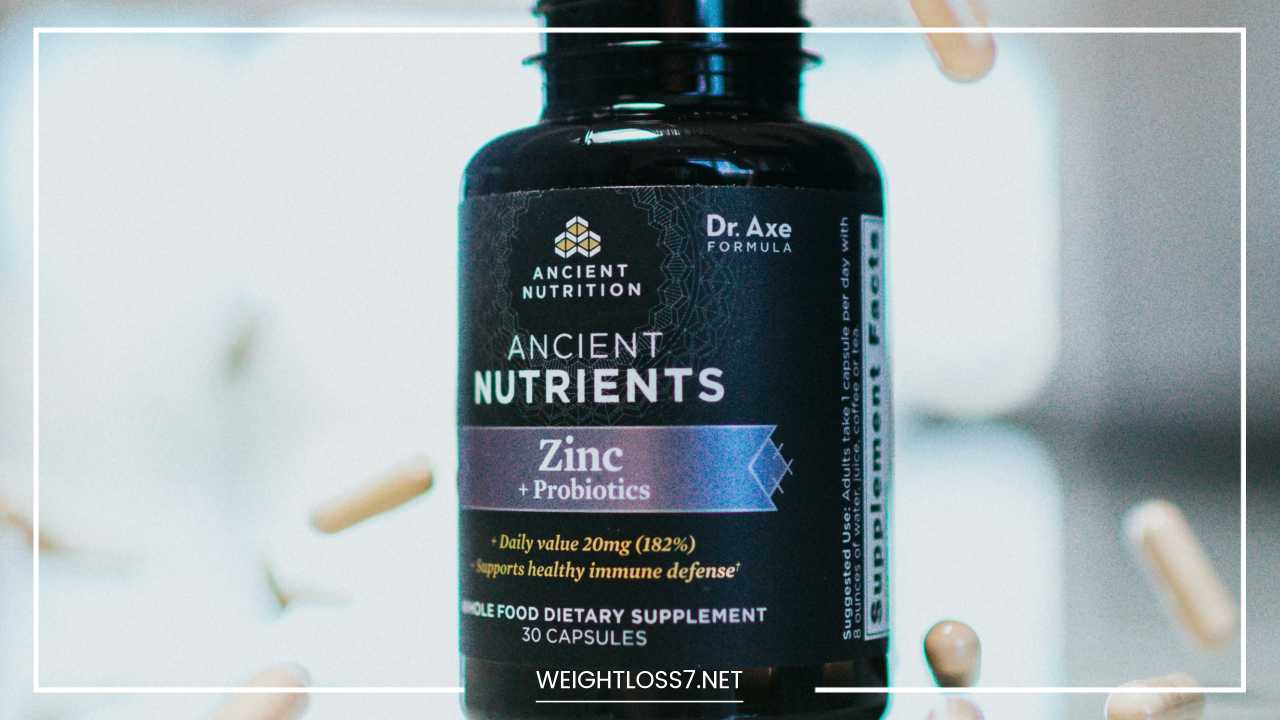Dietary Supplements: Benefits, Risks & What to Choose

Dietary Supplements
Unveiling the Supplement Aisle: A Comprehensive Guide to Dietary Supplements
Dietary supplements have become ubiquitous in our health-conscious society. From the bustling aisles of grocery stores to the meticulously curated shelves of health shops, these products promise a path to improved well-being.
But with an overwhelming array of options and often conflicting information, navigating the world of supplements can be a daunting task.
This comprehensive guide delves deep into the world of dietary supplements, equipping you with the knowledge to make informed choices that support your individual health goals.
We’ll explore the potential benefits and drawbacks of supplements, delve into the science behind specific ingredients, and equip you with strategies for choosing high-quality products.
Beyond the Basics: Unveiling the Diverse World of Supplements
Dietary supplements encompass a wider range than the ubiquitous multivitamin. They come in various forms, catering to diverse needs and preferences. Here’s a breakdown of some common categories:
- Vitamins and Minerals: The building blocks of good health, these essential micronutrients play vital roles in various bodily functions. Popular examples include vitamin D for bone health, vitamin B12 for energy production, and iron for red blood cell formation.
- Herbal Supplements: Derived from plants, these supplements boast a long history of traditional use. From the calming properties of chamomile to the immune-supporting benefits of elderberry, herbal supplements offer a natural approach to wellness.
- Amino Acids: The building blocks of protein, amino acids are crucial for muscle growth, repair, and numerous other bodily processes. Popular examples include L-arginine for nitric oxide production and branched-chain amino acids (BCAAs) for muscle recovery.
- Enzymes: These biological catalysts accelerate various chemical reactions in the body. Digestive enzymes can aid nutrient absorption, while enzymes like bromelain may promote healthy inflammation response.
- Probiotics: Live bacteria that reside in our gut, probiotics play a vital role in digestion, immune function, and overall gut health. Probiotic supplements can help restore gut flora balance after antibiotic use or support digestive issues like irritable bowel syndrome (IBS).
The Science Behind Supplements: Demystifying Potential Benefits
Understanding the science behind specific supplements can help you decide if they’re a good fit for your needs. Here’s a closer look at some popular examples and their potential benefits:
- Omega-3 Fatty Acids: Found in fatty fish and fish oil supplements, omega-3s play a crucial role in heart health by reducing inflammation and improving blood lipid profiles.
- Glucosamine and Chondroitin: These naturally occurring substances are the building blocks of cartilage, and supplements containing them may help manage pain and improve joint function in osteoarthritis. (It’s important to discuss with your doctor, as evidence can be mixed.)
- Coenzyme Q10 (CoQ10): An antioxidant involved in energy production, CoQ10 levels decline with age. Some studies suggest CoQ10 supplementation may benefit heart health and cognitive function, but further research is needed.
Beyond the Hype: Addressing Potential Risks and Interactions
While supplements offer potential benefits, it’s crucial to understand their limitations and potential drawbacks. Here are some key considerations:
- Supplementing Doesn’t Replace a Healthy Diet: A balanced diet rich in whole foods should be the cornerstone of your health. Supplements are meant to complement, not replace, a healthy dietary pattern.
- Quality and Regulation: The supplement industry is less tightly regulated than the pharmaceutical industry. Be wary of unrealistic claims and research the brand’s reputation before purchasing.
- Potential Side Effects and Interactions: Supplements can interact with medications or other supplements, causing side effects. Always consult your doctor before starting any new supplement, especially if you have underlying health conditions or take medications.
- Overconsumption Risks: Taking megadoses of certain supplements can be harmful. Always follow recommended dosages and consult with a healthcare professional for personalized guidance.
Optimizing Your Supplement Journey: Selecting High-Quality Products
With the right approach, supplements can enhance your overall well-being. Here are some tips for navigating the supplement aisle and selecting high-quality products:
- Consult Your Doctor: Discuss your individual needs and health history with your doctor to determine if supplements are right for you and which ones might be beneficial.
- Do Your Research: Learn about the specific supplement you’re interested in, its potential benefits, risks, and recommended dosages. Reliable sources include the National Institutes of Health (NIH) Office of Dietary Supplements (ODS) and reputable medical websites.
- Look for Reputable Brands: Choose supplements from companies with a good reputation for quality control and third-party testing. Look for certifications from independent organizations like USP (United States Pharmacopeia) or NSF International.
- Read Labels Carefully: Pay close attention to the dosage, ingredients, and potential interactions with medications you’re taking. Look for supplements that are free from artificial colors, flavors, sweeteners, and preservatives.
Free From Unwanted Ingredients:
- Free from unwanted ingredients: Look for supplements free from artificial colors, flavors, sweeteners, and preservatives. These additives can be unnecessary and potentially harmful.
- Consider Third-Party Certifications: Look for certifications like USP Verified or NSF Certified for Sport, which indicate independent testing for quality and purity.
Optimizing Your Supplement Regimen
Once you’ve chosen high-quality supplements, here are some tips for maximizing their benefits:
- Dosage Matters: Don’t exceed the recommended dosage. More isn’t necessarily better, and high doses can lead to side effects.
- Timing Can Be Key: Take some supplements with meals to enhance absorption, while others are best taken on an empty stomach. Consult the product label or your doctor for specific recommendations.
- Consistency is Crucial: Take your supplements consistently for optimal benefits. Skipping doses can diminish the effects.
- Monitor Your Progress: Pay attention to how your body feels while taking supplements. If you experience any negative side effects, discontinue use and consult your doctor.
- Re-evaluate Regularly: Discuss your supplement regimen with your doctor during regular checkups. Your needs may change over time, and adjustments might be necessary.
Supplementing for Specific Needs: Tailoring Your Approach
While this guide provides a general overview, some individuals may benefit from targeted supplementation based on specific needs. Here are some examples:
- Athletes: Athletes may require additional protein, creatine, and electrolytes to support performance and recovery. Consulting a registered dietitian or sports physician can help create a personalized plan.
- Pregnant and Lactating Women: Folic acid is crucial for fetal development, and prenatal vitamins provide essential nutrients for both mother and baby.
- Adults Over 50: As we age, our absorption of certain nutrients like vitamin B12 decreases. Supplements can help bridge these gaps.
Emerging Frontiers: Exploring the Future of Supplements
The landscape of dietary supplements is constantly evolving. Here’s a glimpse into some exciting advancements:
- Personalized Supplements: Tailored to individual genetic profiles and nutritional needs, personalized supplements hold immense potential for optimizing health.
- Bioavailable Forms: Advancements in formulation technology are leading to the development of more bioavailable forms of nutrients, enhancing their absorption by the body.
- Combination Supplements: Combining synergistic ingredients for targeted health benefits is a growing trend in the supplement industry.
Ethical Considerations in the Supplement Industry
While the potential benefits of supplements are vast, the industry also faces ethical concerns. Here are some key points to consider:
- Sustainability: The sourcing of certain herbal ingredients can have environmental impacts. Look for companies committed to sustainable practices and responsible sourcing.
- Labor Practices: Unethical labor practices can sometimes be present in the supplement supply chain. Choose brands that prioritize fair labor practices and ethical sourcing.
- Marketing Claims: Be wary of exaggerated marketing claims and unrealistic promises. Reliable sources like the National Institutes of Health (NIH) Office of Dietary Supplements (ODS) can help you separate fact from fiction.
Complementary Approaches to Wellness: A Holistic Perspective
Dietary supplements can be a valuable tool, but they are not a magic bullet for optimal health. A holistic approach that integrates various aspects of well-being is crucial. Here are some additional strategies to consider:
- Prioritize a Balanced Diet: Focus on consuming a variety of whole, unprocessed foods to ensure you’re getting a wide range of essential nutrients.
- Embrace Regular Exercise: Physical activity is vital for overall health and well-being. Aim for at least 150 minutes of moderate-intensity exercise per week.
- Prioritize Quality Sleep: Adequate sleep is essential for physical and mental health. Strive for 7-8 hours of quality sleep each night.
- Manage Stress Effectively: Chronic stress can wreak havoc on your health. Explore stress-management techniques like yoga, meditation, or deep breathing exercises.
- Seek Support from Qualified Professionals: Consider consulting a registered dietitian for personalized dietary advice or a licensed therapist for guidance on stress management and mental well-being.
The Power of Informed Choices: Empowering Your Wellness Journey
By taking an informed approach to dietary supplements and integrating them into a holistic lifestyle, you can empower your wellness journey.
Remember, supplements are meant to complement, not replace, a healthy diet and lifestyle. With knowledge, strategic choices, and a commitment to overall well-being, you can harness the potential of supplements to support your health goals and live a vibrant, healthy life.
Additional Resources:
- U.S. Food and Drug Administration (FDA): https://www.fda.gov/food/dietary-supplements
- National Institutes of Health (NIH) Office of Dietary Supplements (ODS): https://ods.od.nih.gov/
- Academy of Nutrition and Dietetics: https://www.eatright.org/
Disclaimer: This blog post is for informational purposes only and should not be construed as medical advice. Always consult with a qualified healthcare professional before starting any new supplement regimen.

















